Russia-Ukraine talks in Berlin on Donbas conflict fail to yield breakthrough
Russian and Ukrainian negotiators say they failed to reach a breakthrough after nine-hour marathon talks aimed at finding ways to end the long-simmering conflict in eastern Ukraine’s Donbas region.
Speaking to reporters at a late-night briefing in Berlin on Thursday, Russian envoy Dmitry Kozak said it had not been possible to “overcome” Russia and Ukraine's different interpretations of the 2015 agreement aimed at ending fighting between pro-Russia forces and Ukrainian government troops.
The closed-door meeting saw foreign policy advisers from Germany, France, Russia and Ukraine continuing "Normandy format'' talks, named after the 2015 agreement.
“Unfortunately, almost nine hours of negotiations ended without any visible, tangible results expressed in documents,” Kozak asserted.
His Ukrainian counterpart Andriy Yermak said the four sides “were unable to agree on any joint document” but added that they will continue the talks to break the stalemate.
"I hope that we will meet again very soon and continue these negotiations,” he said. “Everyone is determined to achieve a result.”
The longstanding conflict in eastern Ukraine’s Donetsk and Luhansk regions, known together as Donbas, continues to simmer notwithstanding a notional ceasefire.
Representatives of Russia, Ukraine, the Organisation for Security and Cooperation in Europe (OSCE) and the two restive regions signed a 13-point agreement in February 2015 in the Belarusian capital of Minsk, which was endorsed by France and Germany.
The accord sought to end the conflict that erupted a year earlier when a wave of protests overthrew Ukraine's democratically-elected government and replaced it with a Western-leaning administration.
Russian Foreign Minister Sergei Lavrov earlier in on Thursday accused Ukraine of trying to rewrite the agreement and cherry-pick the elements most advantageous to it.
Yermak, however, said Ukraine was committed to the accord.
"The Ukrainian side is set on constructive dialogue. Everyone confirmed today that we have the Minsk agreements and they need to be fulfilled,” he noted.
Observers from the OSCE have recorded frequent violations of the Minsk deal by the warring sides, with Ukraine going as far as to claim that some 15,000 people have been killed since 2014.
Kiev and the Western countries accuse Moscow of having a hand in the crisis. Moscow vehemently denies the allegations.
Biden asks US citizens in Ukraine to leave
In a separate development on Thursday, US President Joe Biden called on Americans to immediately leave Ukraine amid escalating tensions between Russia and the West.
"American citizens should leave now," Biden said in a pre-taped interview with NBC News. "We're dealing with one of the largest armies in the world. It's a very different situation and things could go crazy quickly."
Asked whether there was a scenario that could prompt the US to send troops to rescue Americans fleeing Ukraine in case of an alleged Russian invasion, Biden said: “There’s not. That's a world war when Americans and Russia start shooting at one another. We’re in a very different world than we’ve ever been.”
The US State Department also issued an advisory warning that Washington “will not be able to evacuate US citizens in the event of Russian military action anywhere in Ukraine.”
It added that the regular consulate service — including aiding citizens trying to leave the country — would be “severely impacted.”
Russia launches joint military drills with Belarus
Meanwhile, Russia and Belarus on Thursday began 10 days of joint military drills amid soaring tensions over large military buildup along its border with Ukraine.
The US-led NATO claims that around 30,000 Russian troops are estimated to be in Belarus to take part in the exercises, referring to it as the biggest Russian deployment there since the Cold War.
France has called the drills a "violent gesture", while Ukraine says they amount to "psychological pressure". UK Prime Minister Boris Johnson said on Thursday that Europe faces its biggest security crisis in decades.
A Kremlin spokesman described the joint drills as serious, saying the two participating countries were being "confronted with unprecedented threats".
Russia’s defense ministry said the military exercises are due to run until February 20 to test their preparedness when it comes to “suppressing and repelling external aggression during a defensive operation, as well as countering terrorism and protecting the interests of the Union State.”
Russia has also sent six warships through Turkey’s Bosphorus Strait for naval drills on the Black Sea and the neighboring Sea of Azov.
Russian military officials said the naval maneuvers are focused on measures by the Navy and the Aerospace Force to protect Russia’s national interests and to counter military threats to Russia from the direction of seas and oceans.
Relations between Russia and the West have hit a new low in recent weeks.
The US, its NATO allies, and Ukraine have accused Moscow of amassing troops near Ukraine's border for a possible invasion. Moscow rejects the allegation and insists that deployments are defensive in nature.
The US military has put 8,500 troops on heightened alert for deployment to Eastern Europe to bolster the NATO presence in the region.
The US State Department has also approved shipments of US-made missiles and other weapons from NATO allies Lithuania, Latvia, and Estonia to Ukraine.
US President Joe Biden has warned that Moscow would face unprecedented sanctions if it invades Ukraine. He has also threatened direct economic sanctions on Putin.
Biden administration has been spearheading efforts to build a united front against Russia, but the attempts have been wrought with divisions among the European allies and partisan bickering at home.
At the heart of the row is the US opposition to the Nord Stream 2 gas pipeline, a vast network of offshore natural gas pipelines that runs under the Baltic Sea from Russia to Germany.
Washington has grown uneasy with the prospect of Europe becoming more energy-dependent on Russia at a time when the US is trying to dominate the world energy market through its ramped-up oil and gas production as part of its "energy war."
Many analysts believe the US sees Ukraine as an opportunity to wean Europe off Russia's gas, which explains why Washington is stoking the tensions and pursuing a confrontational policy.
VIDEO | Yemen: A bone in Israeli neck
D-8’s role in Iran’s economy after Cairo summit
China slams US as ‘war-addicted’ threat to global security
China ‘firmly opposes’ US military aid to Taiwan
VIDEO | Press TV's News Headlines
President Yoon Suk Yeol to be removed from office
At least 19 Gazans killed by Israeli airstrikes since dawn: Medics
Leader: Iran neither has nor needs proxy forces


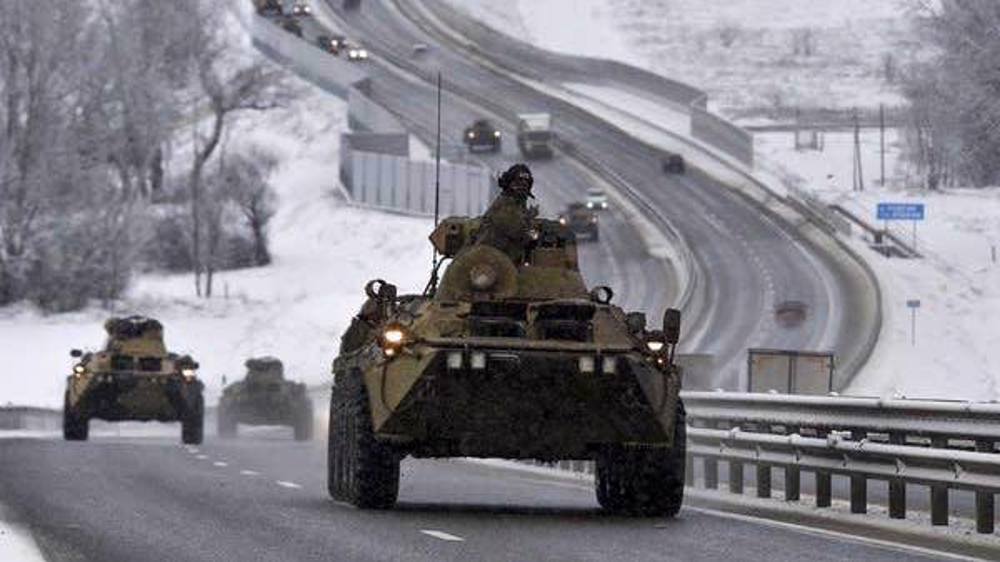
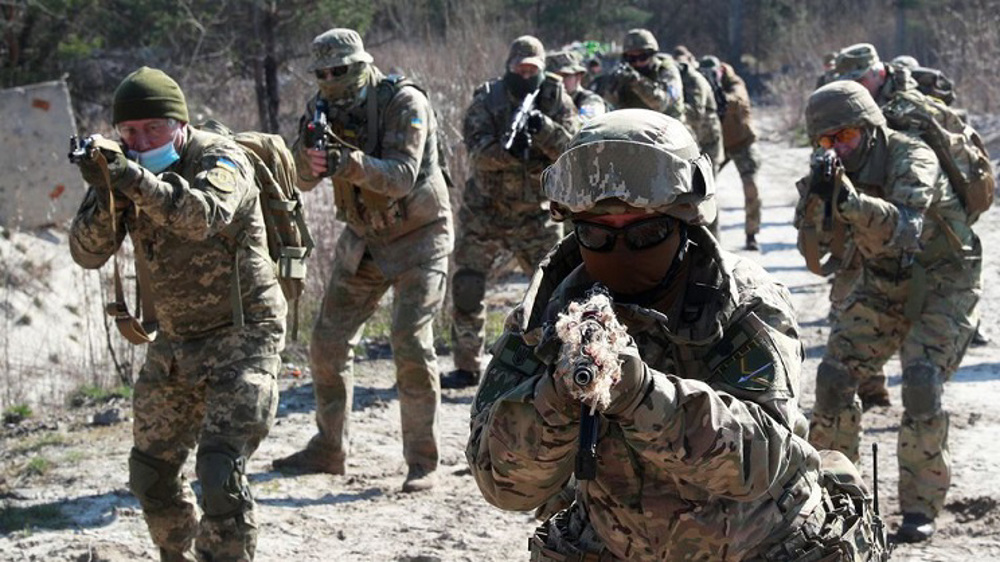
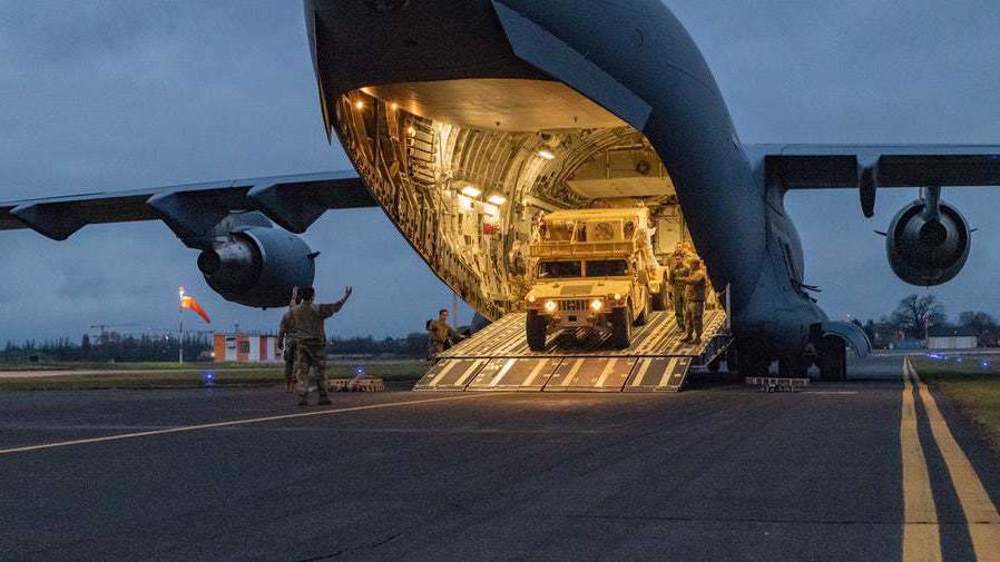


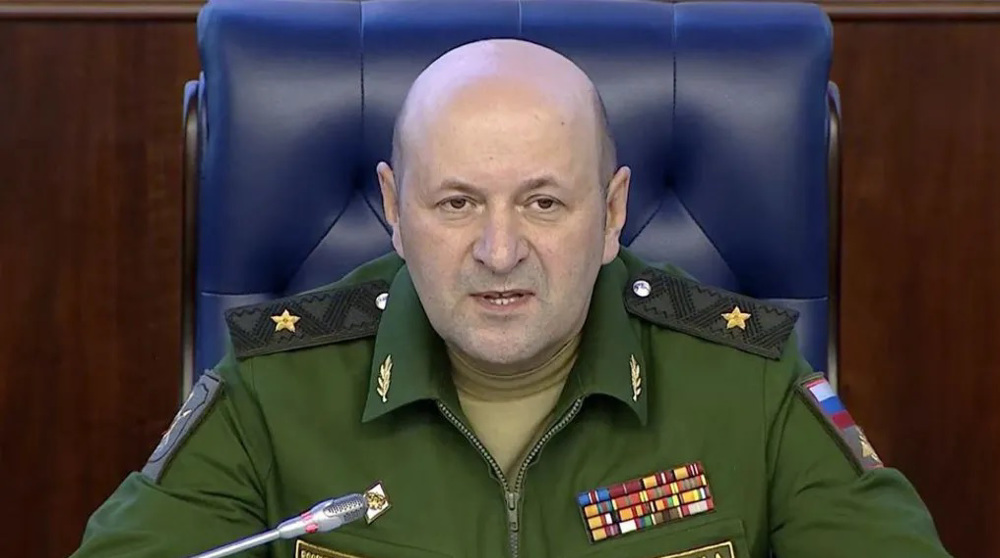



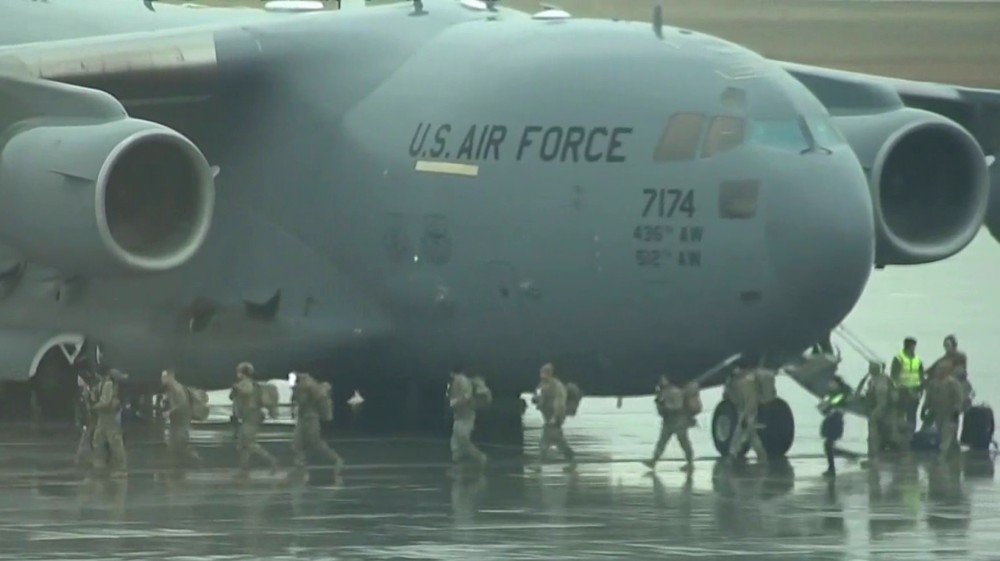
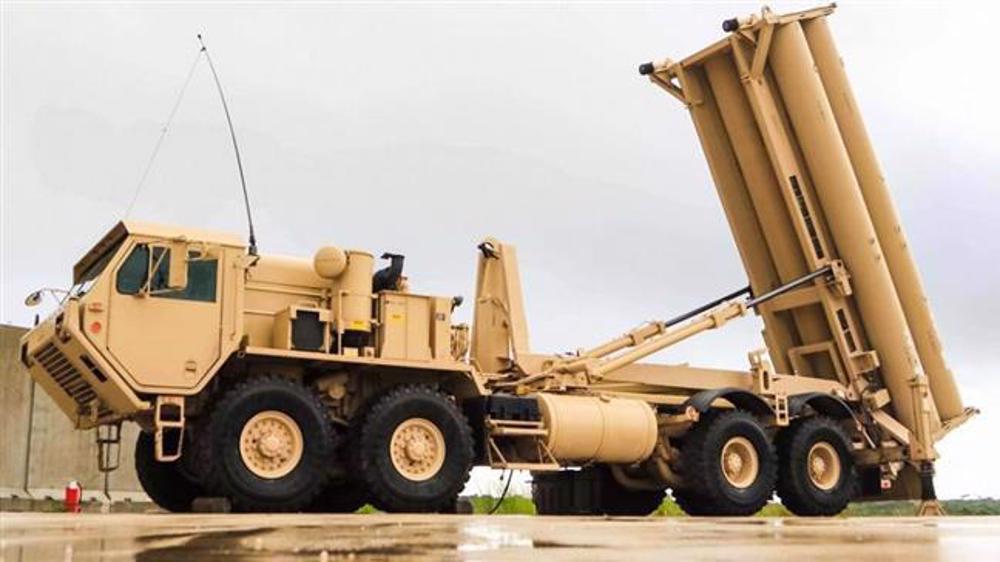
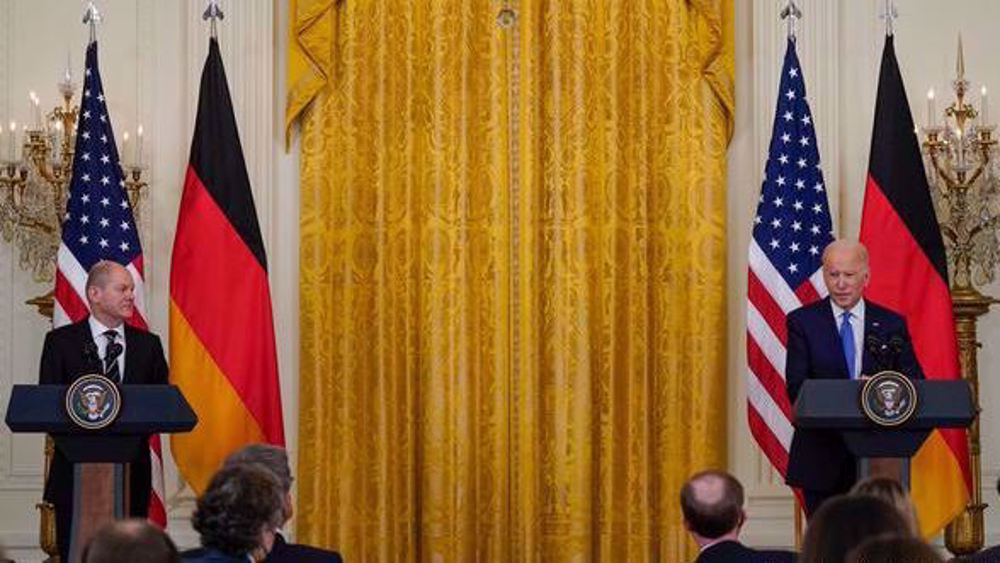
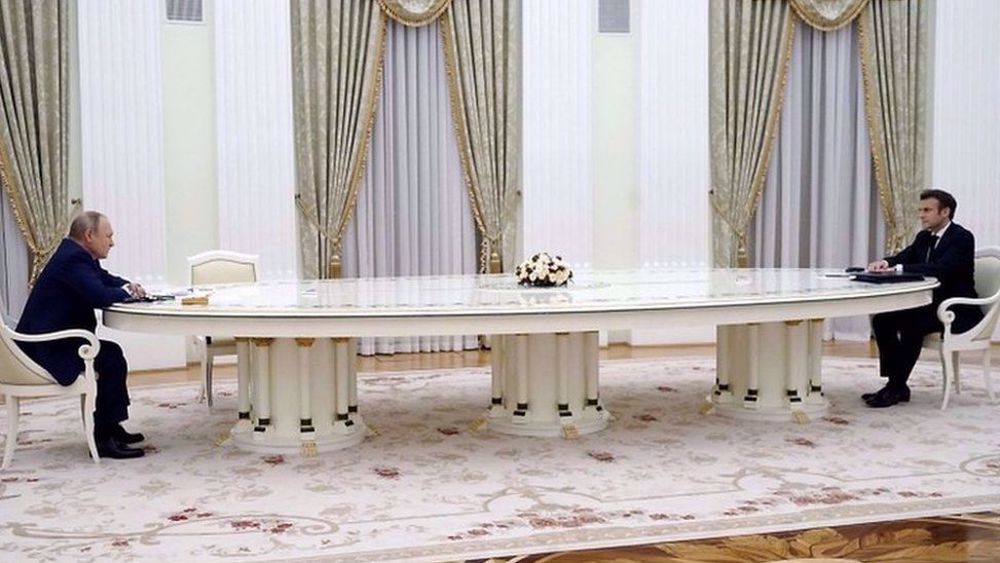

 This makes it easy to access the Press TV website
This makes it easy to access the Press TV website